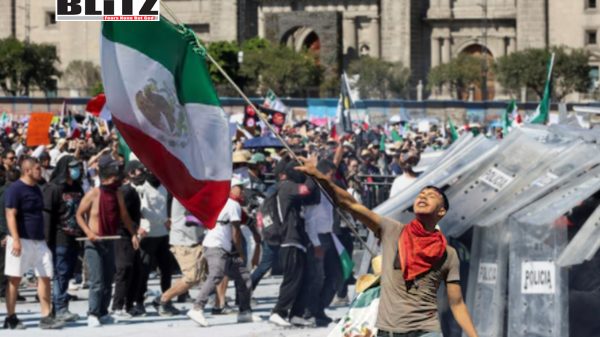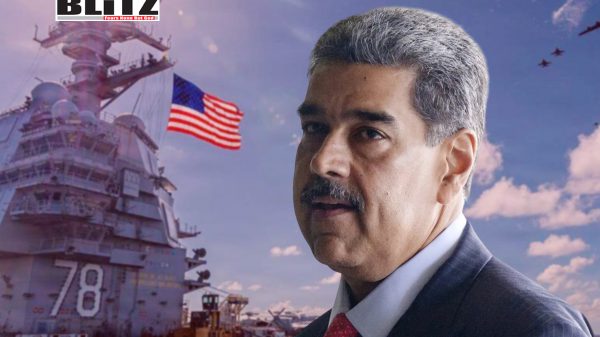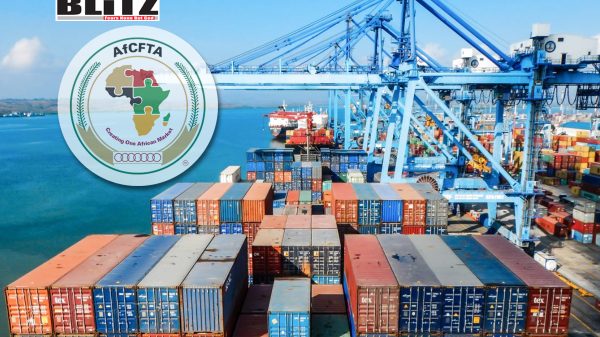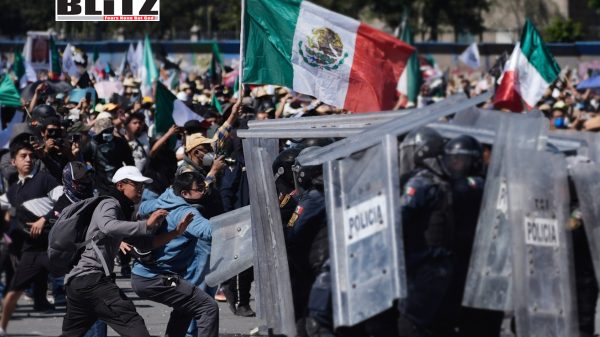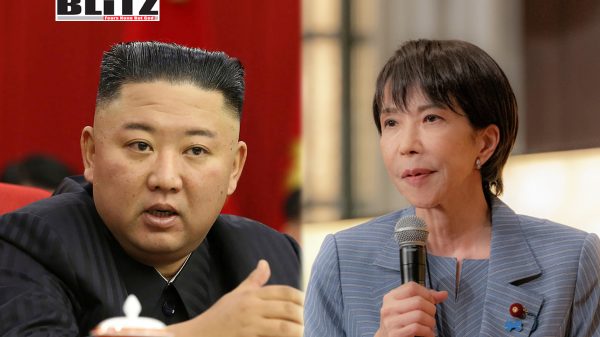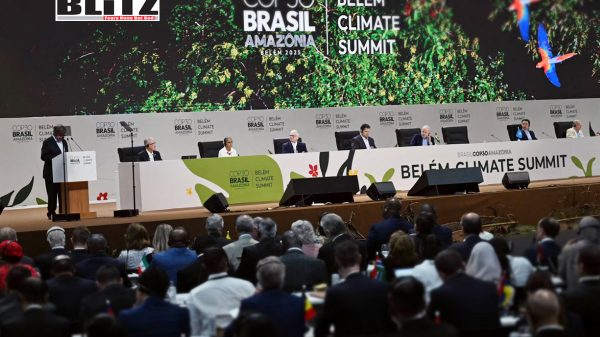Spain arrests Ecuador’s most wanted gang leader in major security breakthrough
- Update Time : Tuesday, November 18, 2025
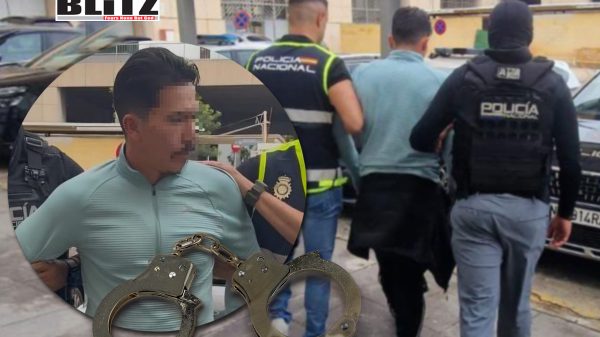
Ecuador’s long and grueling battle against spiraling cartel violence reached a watershed moment this week when Spanish authorities, working in close coordination with Quito, arrested Wilmer Geovanny Chavarría Barré-better known as “Pipo”-the elusive and feared leader of the criminal group Los Lobos. President Daniel Noboa announced the capture on November 16, calling it “a historic blow to the security of Ecuador” and one of the most significant breakthroughs in the country’s fight against transnational organized crime.
For a nation traumatized by years of escalating bloodshed, prison massacres, political assassinations, and the domination of drug-trafficking gangs, the arrest of Chavarría Barré represents more than just the detention of one man. It symbolizes the possibility that the state may be clawing back control after years of dwindling authority in the face of criminal power.
Interior Minister John Reimberg described Chavarría Barré as “the most dangerous and wanted criminal in the region,” a figure whose influence stretched far beyond Ecuador’s borders. Authorities accuse him of orchestrating at least 400 deaths linked to gang wars, territorial takeovers, and drug trafficking operations. His notoriety grew not merely due to his brutality, but also because of his ability to evade capture-a skill sharpened by strategic deception and clever manipulation of international law enforcement gaps.
In 2021, Chavarría Barré reportedly faked his own death, a move that allowed him to slip unnoticed into Europe under an entirely new identity. From there, he is believed to have built an expansive criminal network across multiple countries including the Netherlands, Italy, Germany, Mexico, and Colombia. Investigators say he directed shipments of cocaine, managed logistics hubs, and oversaw money-laundering operations. His ties to the increasingly powerful Ecuador New Generation Cartel (ENGC) and other transnational networks positioned him as a major strategic player in the global narcotics trade.
Los Lobos, the gang Pipo led, has played a central role in Ecuador’s transformation from a relatively peaceful Andean nation into one of Latin America’s most dangerous hotspots. Once considered peripheral compared to giants like Sinaloa or Colombia’s ELN, Los Lobos leveraged strategic alliances, access to ports, and the fragmentation of Ecuador’s prison system to expand aggressively.
The gang is blamed for some of the most horrific massacres inside Ecuadorian prisons, where hundreds of inmates have died in clashes since 2021. Their rise coincided with the country’s growing importance as a transit route for cocaine flowing from Colombia and Peru to Europe and the United States. The ports of Guayaquil, Esmeraldas, and Manta became battlegrounds for control of smuggling corridors, and Los Lobos quickly positioned themselves as major players.
Authorities argue that Chavarría Barré was the architect behind much of this expansion. His operations in Europe allowed Los Lobos to establish a transatlantic presence, bypassing traditional routes and competitors. With Pipo at the helm, the gang evolved into what some analysts describe as a hybrid criminal organization-part cartel, part mafia, part paramilitary structure.
The arrest was the result of what Interior Minister Reimberg called “an impeccable and coordinated operation with the Police of Spain,” underscoring the increasing necessity of multinational collaboration in combating globally connected criminal groups. The joint effort reportedly involved intelligence-sharing, surveillance operations, and weeks of cross-border monitoring to track Chavarría Barré’s movements through Madrid and surrounding regions.
While details about the exact circumstances of his capture have not yet been made public, officials confirm that Spanish police acted swiftly once it was clear that Chavarría Barré was operating under a new identity and using fraudulent documents. The arrest demonstrates that even the most sophisticated criminal fugitives can be caught when governments combine efforts and pool intelligence resources.
For President Daniel Noboa, the arrest marks a major victory at a critical time. His administration has centered much of its agenda on tackling Ecuador’s security crisis, arguing that the country must confront gangs with renewed strength and modernized institutions. Noboa has declared several states of emergency since taking office, deployed the military to restore order in prisons, and pursued legislative reforms aimed at tightening the state’s grip on criminal networks.
The capture of Pipo provides a powerful boost to these efforts. Noboa framed the arrest as evidence that Ecuador is no longer operating in isolation and that the world recognizes the urgency of dismantling transnational crime. “This demonstrates our determination and the strength of international cooperation,” he stated, adding that Ecuador will continue to work with global partners to “ensure justice prevails.”
Despite the triumph, analysts caution that Pipo’s arrest does not eliminate the threat posed by Los Lobos or other competing groups such as Los Choneros and the ENGC. If anything, leadership vacuums within criminal networks can sometimes trigger violent succession struggles. Ecuador has seen this cycle repeatedly-one high-profile arrest removes a kingpin, only to unleash a new round of bloodshed as rival factions reposition themselves.
Moreover, Chavarría Barré’s deep connections inside and outside Ecuador mean that his criminal infrastructure may continue functioning even during his detention. The challenge for authorities is not only to prosecute him successfully but also to dismantle the financial, logistical, and operational pillars of Los Lobos.
Even with these uncertainties, the arrest of Wilmer “Pipo” Chavarría Barré stands as a rare moment of progress in Ecuador’s fight against the cartels that have embedded themselves in the fabric of society. It is a reminder that, despite the reach of transnational crime, it is possible for nations to push back-especially when collaboration crosses borders and agencies work together with precision and resolve.
For now, Ecuadorians are cautiously optimistic. After years of violence, instability, and insecurity, the fall of Los Lobos’ top leader offers a glimpse of a different future-one where justice can catch up with even the most dangerous and elusive criminals.


